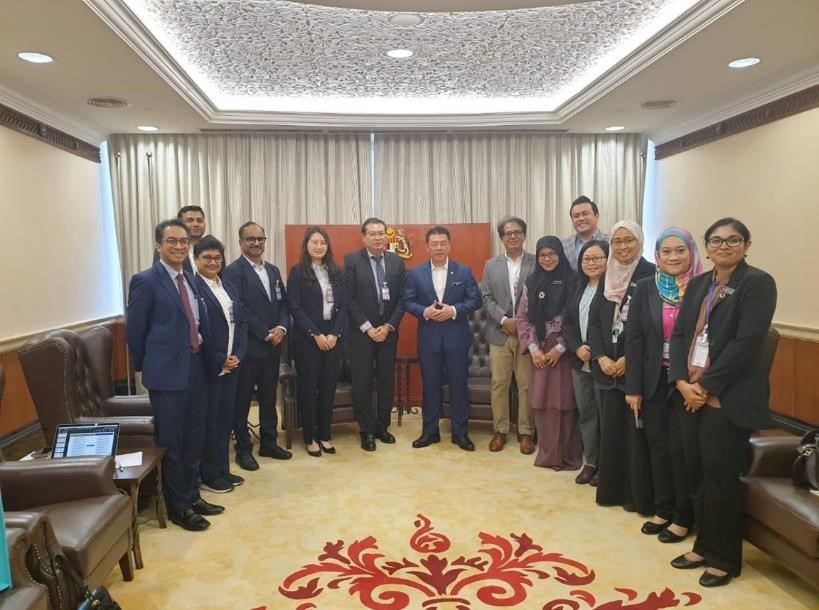ICLEI Local Governments for Sustainability, South Asia; ICLEI Local Governments for Sustainability, Southeast Asia; IMT-GT Joint Business Council (JBC) Malaysia along with support from the Asian Development Bank have begun the implementation of the Green City Action Plan (GCAP) subproject 1 in the Malaysian cities of Penang, Langkawi, Kota Bharu and Kuching. The project focuses on the preparation of GCAPs along with Quality Infrastructure Investment (QII) projects, and capacity building to implement the GCAPs. To kick start the project, a joint mission was organised from March 13 to 23, 2023.
At the outset, the delegation had a courtesy meeting with the YB. Nga Kor Ming, Minister for Local Government Development (KPKT), Malaysia to introduce GCAP Subproject 1 and discussed its implementation. The minister highlighted the need for scaling up a drive-through recycling centre and waste-to-energy plant in Malaysian cities through the GCAP programme. The delegation also met the Malaysian Green Technology and Climate Change Corporation (MGTC) and learned about the progress and updates on implementation of the Low Carbon Cities Framework.
The GCAP Subproject 1 was then launched on March 14, 2023, with the National Capacity Building Workshop on GCAP preparation in Putrajaya, Malaysia, with the presence of all key stakeholders including representatives from national development agencies, GCAP Subproject 1 cities and state government representatives. The national workshop enhanced the technical understanding and capacities of the participants on the need and process of GCAP preparation including the identification and implementation of QII projects. The workshop was attended by senior representatives of several national-level Malaysian ministries including the Ministry of Economy, Ministry of Natural Resources, Environment & Climate Change, Ministry of Local Government Development, senior representatives of city councils, as well as representatives of the implementing agencies, ADB, ICLEI South Asia and several private sector institutions. Representatives of the city councils of Kuching, Penang, Langkawi & Langkawi Development Authority and Kota Bharu presented the current development status, challenges and priorities of their overall plans for their cities.
Further, the city-level GCAP workshops were also organised in Penang, Langkawi and Kota Bharu on March 17, 19 and 22, 2023, respectively. These workshops benefited local government officials in understanding basic concepts around the green and sustainable city and the process for GCAP preparation. Data and information requirements for the preparation of the city profile and need assessment, GHG Emissions Inventory as well as the Climate Risk and Vulnerability Assessment were also discussed in detail. In Penang, the GCAP delegation also visited an charging station, drive-through recycle centre and electric bus depot. The delegation discussed in detail all these good practices including the O&M aspects.
Green City Action Plans (GCAP) are roadmaps for cities to move towards a sustainable and resilient future and Malaysia has taken the steps to start building green, sustainable and liveable cities. The GCAPs are crucial to address environmental challenges, achieving sustainable development goals, aligning with national policies, and accelerating post-COVID-19 competitiveness and resilience. The new generation GCAPs will include a QII pipeline of projects with techno-economic feasibility to support their implementation. QII will also include a list of low-hanging projects those are easy to implement and will bring a high impact on the green and clean development ambitions of Malaysian cities. The project will build technical capacity and understanding, based on the specific needs, of city officials and local stakeholders on the mobilization of resources from the private sector and international funding agencies to accelerate the implementation of GCAPs.
